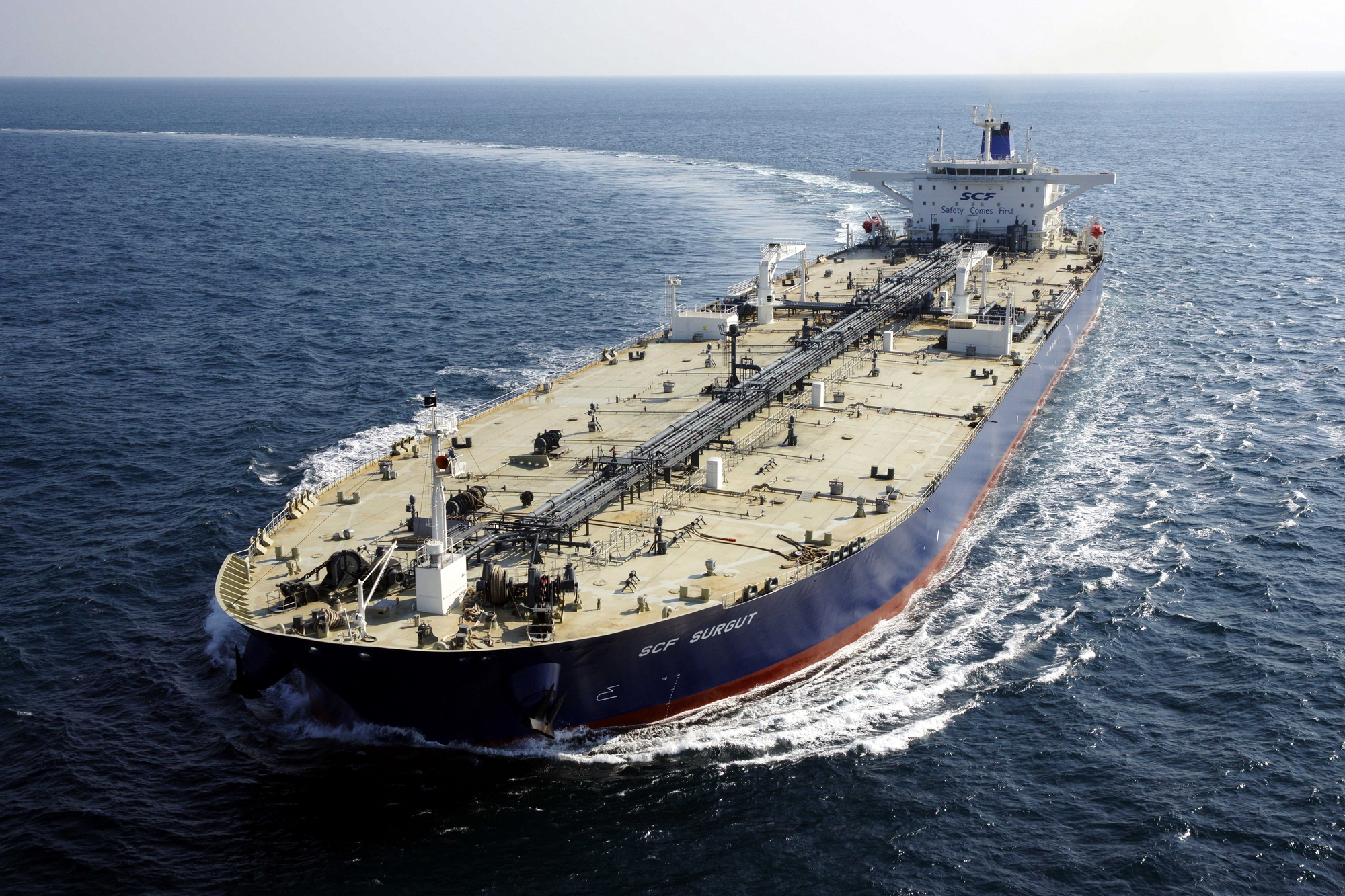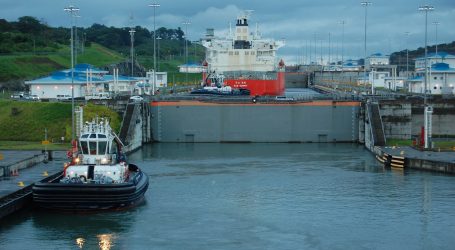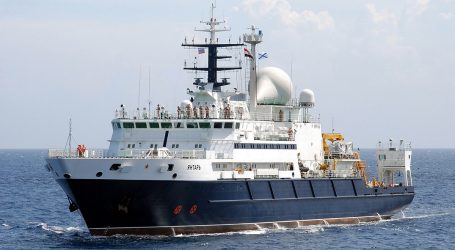The shippers’ massive hiding of the Russian tankers’ location may be a prelude to their formal transfer to the flags of convenience registers. This is a circumvention of sanctions and concealing the identity of oil suppliers – points out the Polish Economic Institute (PIE). According to PIE, oil from Russia may come back to the markets “through the back door”.
As PIE pointed out, citing data from the Marinetraffic platform as of April 5, there has been no AIS data (a system that provides information on a ship’s location) for 431 of Russia’s 710 tankers in the last 24 hours.
“30 ships have not sent a signal for 24 hours, 103 – for a week, and 140 – for the last month”. As experts explained, this could mean a failure of the AIS system on a given ship or a deliberate shutdown of the localization systems.
According to the Institute’s analysts, “the massive concealment of the location of Russian tankers by shippers may be a prelude to their re-registration and formal transfer to companies registered in tax havens offering so-called flags of convenience”.
They added that this is “a common practice in the fossil fuel trade, allowing to avoid taxation, circumvent international sanctions and hide the identity of oil suppliers”. As the PIE experts said, “Russian oil may return to the markets through the back door”.
According to a PIE expert analysis, among the 29.648 tankers registered worldwide, 20 per cent were registered in Panama (1885), the Marshall Islands (1643), Liberia (1607) and Saint Vincent and the Grenadines (747).
As many as 43 per cent of the world’s large tankers (over 60,000 dwt) were registered in the Marshall Islands (680), Liberia (610) and Panama (318), analysts noted. In Russian ports, in addition to 230 tankers flying the Russian flag and 15 tankers from the countries offering flags of convenience (Bermuda, Hong Kong, Liberia, Marshall Islands), carrying capacity of about 13 million barrels of oil, 12 tankers from EU countries (Cyprus, Greece, Malta), capable of carrying more than 9.6 million barrels, are berthed.
According to PIE, international oil traders can play a key role in mitigating the effects of sanctions. Moreover, the traders may also facilitate Russia’s circumvention of sanctions if they are imposed by the EU8 countries and limit the exposure of Russian companies to the effects of potential counter-sanctions against the so-called countries, implementing actions unfriendly to the Russian Federation.
They said that Russian oil traders such as Surgutneftegaz and Zarubezhneft are moving away from transparent forms of oil trading, increasingly opting for direct transactions.
PIE recalled that since the beginning of Russian aggression against Ukraine, the value of Russian oil has fallen by more than 13 per cent – from $95 to $81 per barrel. During this period, the average value of Brent, Dubai and WTI crude oil increased by 8 per cent – from $95 to $102 per barrel. It added that the value of the price differential between Urals and European Brent crude oil increased more than fivefold, from $4 to $23 per barrel.
“Russian oil is finding fewer and fewer buyers, which translates into its much lower price on world markets. However, despite an increasing number of companies giving up Urals oil, Russian exporters are still finding buyers in the EU,” PIE experts noted.
Russian refineries within the EU consume 1.23 million barrels of oil per day. These include the Italian refinery ISAB, the Bulgarian refinery Neftochim Burgas, the Danish refinery Zeeland of the Lukoil group and the German refineries PCK Schwedt and Miro of the Rosneft group.
“According to PIE analysts, the European Union imports nearly 3.0 million barrels of Russian oil per day. However, they remind that the EU has still not imposed an embargo on Russian oil, unlike Australia, Canada, the UK, and the US.”
Despite the countries where the Russians have refineries, Hungary, which processes more than 0.21 million barrels per day of Russian oil at its refineries in the state-owned MOL group, has also declared its opposition to the embargo.
The Russian oil sector plays a key role in subsidizing unprofitable branches of the Russian economy and redistributing capital rents and political influence among representatives of the Russian power elite. Therefore, actions related to the embargo will be crucial in limiting further hostilities of the Russian Federation on the territory of Ukraine, PIE experts concluded.
Russia’s invasion of Ukraine has continued since February 24 this year. As a result, European Commission chief Ursula Von der Leyen announced on Tuesday, April 5, the introduction of the fifth package of sanctions against Russia. It is to include, among other things, a ban on Russian and Russian-operated ships entering EU ports. Furthermore, she reported that additional sanctions, including oil imports, are also being prepared. EU sanctions require unanimity of all 27 member states.
source: PortalMorski.pl




